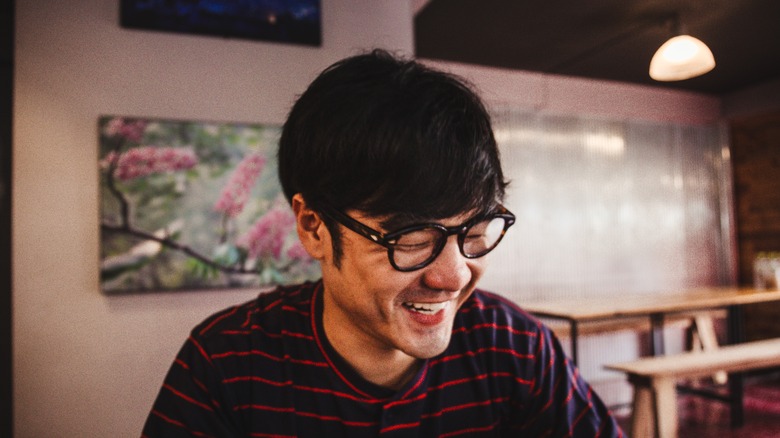Dr. Emiliana Simon-Thomas Discusses How The Documentary Mission: JOY Inspired The BIG JOY Project - Exclusive
A powerful movie can inspire action. For Dr. Emiliana Simon-Thomas, a psychologist at the University of California, Berkeley, "Mission: JOY" — the documentary of the friendship between His Holiness the XIVth Dalai Lama and Archbishop Desmond Tutu and how the two men navigated their difficult lives with genuine joy — was a professional as well as personal inspiration.
"Currently, my work focuses on how prosocial experiences benefit health, well-being, and psychosocial functioning," she explained. "Today, I am considered an expert on the neuroscience and psychology of compassion, kindness, gratitude, and other prosocial skills that bolster human happiness."
For these reasons, the lessons of "Mission: JOY" resonated with her, inspiring her to spearhead an ambitious research program, The BIG JOY Project, to identify effective, actionable ways everyday people can bring more joy into their lives. In an exclusive interview, Dr. Simon-Thomas shared some of the lessons of "Mission: JOY" and how The BIG JOY Project teaches people to put them into action.
The lessons of Mission: JOY confirm scientific findings about joy and its causes
"Mission: JOY" doesn't just document the friendship and joyful outlook of its two subjects — as Dr. Emiliana Simon-Thomas explained, the film was intended to uplift viewers and inspire them to create more joy in both their own lives and the lives of others. "With the current state of events — countries at war, politics dividing us, and rates of depression and anxiety soaring (even before the pandemic) — this film not only lifts spirits but [also] aims to leave us more equipped to create joy in our own lives and for each other," she said.
Chief among the film's lessons is the importance of cultivating relationships. "It especially emphasizes the number one contributing factor to joy in life: friendly and mutually supportive human connections, which counteract the heaviness of the world," Dr. Simon-Thomas said. She added that such connections are a key factor in lasting happiness.
"Feeling like you matter is part of what's called 'eudaimonic happiness,' which includes meaning and purpose, learning and growth, having a moral compass, and accepting experiences, even those that we may consider negative," she explained. "Eudaimonic happiness is central to joy because it is lasting."
Joy is a choice
One of the most striking elements portrayed in "Mission: JOY" is how Archbishop Desmond Tutu and the Dalai Lama maintained steadfastly joyful attitudes even when there didn't seem to be much to be joyful about. The film makes it clear the two men stayed joyful because they chose to embrace joy. As Dr. Emiliana Simon-Thomas noted, this strategy too is backed by scientific research.
"Findings from neuroscience, psychology, medicine, public health, and other fields increasingly confirm what life experience and spiritual traditions have been telling us for thousands of years," she said. As noted in "Mission: JOY," happiness begins with someone choosing to take steps — no matter how small — "in the direction of joy."
For this reason, The BIG JOY Project focuses on the potential impact of small, voluntary actions. "The BIG JOY Project was designed to provide people with a few different micro-acts of joy they can try, like making a gratitude list, committing five acts of kindness in a day, and adopting a more optimistic perspective on personal setbacks," Dr. Simon-Thomas explained. In The BIG JOY Project — which anyone can participate in, free of charge — participants receive a micro-act of joy to try for themselves each day for seven days and are asked to monitor and record their impressions. With this information, she hopes to identify which acts of joy work best for which people and understand both the short-term and long-term impacts of different acts of joy.
Be sure to sign up for The BIG JOY Project and discover which micro-acts of joy are most appealing and beneficial for you.



